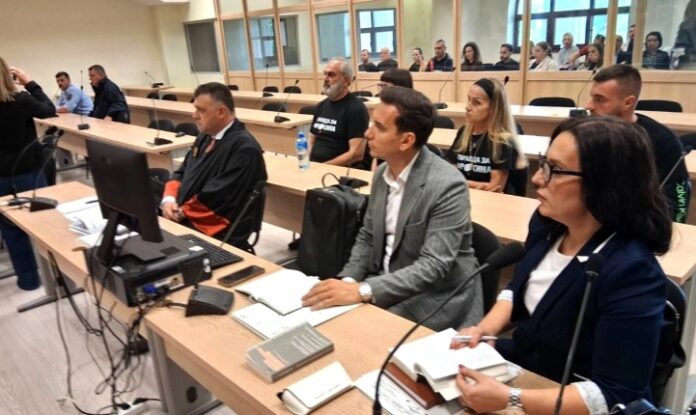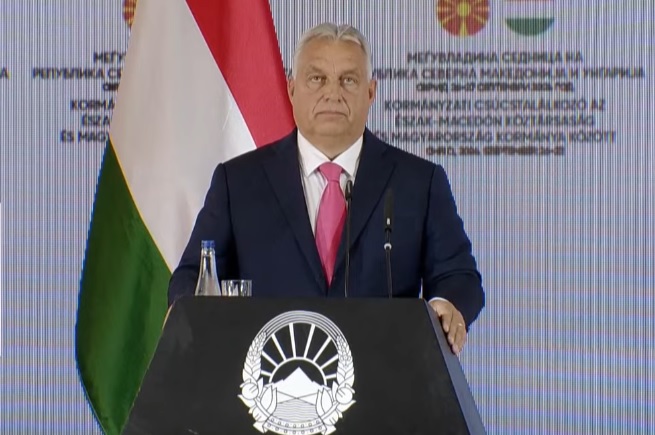To recognize and (not) allow interference in the interior

On the wallpaper principle of international law « non -interference in the internal affairs of other sovereign states »
- « Internal Policy » is a term that in the broadest sense relates to the areas of policy on the territory of a particular state by legitimate and legally elected authorities. In the narrower sense, however, it is a segment of government or public policies relating to issues related to the internal affairs of a country: the constitution, laws, political decisions, programs, other acts, etc. regulating the state sphere, justice, public finances, health, education, transport and electrical infrastructure, environmental protection, culture, etc. Thus, the term « interior », more precisely the phenomenon of « interference in the interior », is linked to the processes of « unfounded and unacceptable involvement or involvement of a third party » in the sovereign internal policy of the domicile state…
- New German Chancellor Friedrich Merz has recently criticized the United States for recent remarks by Vice President Jay Di Vance and Foreign Minister Marko Rubio, who condemned the Alternative for Germany’s Alternative party as a « far -right organization ». Mertz urged US politicians « not to interfere in Germany’s internal affairs » and he called for the important principle of international law « non -interference in the internal affairs of other sovereign states ». When the new German Chancellor is already aware of what that « interference in the interior » means, will he know how to recognize and respect that principle, given the fact that in the past few years the previous Chancellor Olaf Holz and current President Frank Walter-Steinmeier personally brazenly and actively broke this in this principle?
The newly elected German Chancellor Friedrich Mertz took over the post and began to introduce noticeable innovations in German foreign policy. In this context, Mertz urged US leaders to respect the sovereignty of the German state and not interfere in its interior. Mertz has criticized the US administration for interfering in Germany’s internal affairs.
– I did not interfere with the election campaign before the US election, nor did I urge citizens to vote for this or that US party. I expect the same from US politicians-said Friedrich Mertz, who is a chancellor of the Christian Democratic Union (CDU), in an interview with the German Public Broadcasting Service.
Mertz criticized recent remarks by US Vice President JD. Vance and Secretary of State Marko Rubio, who condemned the marking of the Alternative Party for Germany as an extremely right -wing organization. Rubio talked about « tyranny » in Germany. « It is a completely absurd perception for Germany, » Merz retorted.
Also, the new coalition government of Germany in its coalition agreement as one of the main foreign policy tasks cited « the EU’s greater independence from the United States ». The German foreign policy news also includes the German government’s decision to withdraw special envoy Manuel Saracin as Germany’s Special Representative for the Western Balkans.
Germany’s reactions to the United States, the demand to respect the key principle of international law of non -interference in the internal affairs of other states, without going into how or no right Germany in that reaction to the United States is, we are given some principled questions. Will Germany and Macedonia act like this, will it adhere to the principle not to interfere with its interior, given that in the past few years the previous Chancellor Olaf Holz and current President Frank-Walter-Steinmeier has come to Macedonia and have lobbied and pressed for a change of constitution and in the constitution?
On November 29, 2022, Steinmeier found that it was necessary to come to the Macedonian Parliament and address Macedonian MPs personally, to address the « integration process of the village of Macedonia to the EU » and to call « not to break the last meters of the road to EU accession ». Quoting even Petre M. Andreevski and the novel « Piraeus », « The Unrelegant Duration of Peace and Freedom », and even Blaze Koneski and his saying « Language is our homeland », Steinmeier even eventually said what hurt him: « … put the Bulgarians in the Constitution …! »
Recall of the UN Declaration on Friendly Relations and
the system of sources of international law
It is true, not only the German, but also the Macedonian people have « unwriting longing for peace and freedom » or, in other words, and the Macedonians have the longing for not to interfere with other states and other politicians and statesmen in the internal affairs of the sovereign Republic of Macedonia. Hence the expectation and hope that Germany, its government and its Chancellor Mertz, as they urge the United States, should not interfere with their interior, to keep it, to apply it to Macedonia.
In his scientific study entitled « United Nations Declaration on Friendly Relations and the System of International Law Sources », published in 2025, Dr. Gaetano Archio-Ruiz, a professor of international law at the Universities of Padua, Bologna and Rome in Italy. the intervening in the internal affairs of the states and the protection of their independence and sovereignty. » Professor Ruiz quotes two principles of that resolution, which are equally valid for both Germany and Macedonia: « No state, or a group of states, has no right to intervene, directly or indirectly, for any reason, in the internal or foreign affairs of any other state… each state has an inexistitous state, a state -of -the -art,
Citing another important part of the UN’s aforementioned resolution that « the use of force to deprive the peoples of their national identity is a violation of their inalienable rights and the principle of non -intervention », Ruiz emphasizes that this part of the resolution « really belongs to the right of self -determination. »
Given this, Macedonian politicians, the Macedonian state-political leadership, are only left to follow the example of their German counterparts and to demand that the UN’s resolution be implemented in Macedonia’s resolution, as it has a direct reflection on the Macedonian law.
Another question arises from the latest moves by the German government. She decided to withdraw special envoy Manuel Saracin as Germany’s special envoy for the Western Balkans. As soon as Germany has no more its own special envoy, does that mean perhaps even allowing the Balkans to regulate the mutual mutual work without German interconnection, and in that context Macedonia with its « good neighbors »?
Economic relations with Germany are of colossal importance, and non -interference in our interior will also support the new German Chancellor…
However, whatever it is, the Federal Republic remains a state of crucial among all other EU members: both in political and economic terms! Germany is already positioning firmly as the « EU locomotive », regardless of the current difficulties facing its economy. The German president at the end of 2022, during his mentioned visit to Macedonia, indicated that « S. Macedonia is a valued economic location for over 200 companies with German capital, which are one of the largest employers in the country and employing about 20,000 workers. » Germany is a key economic partner of Macedonia and hence all the difficulties and problems facing this political and economic leading European state have their own reflection on the Macedonian economy.
Now, when top world and economic experts warn that « the European Union is ahead of the inevitable economic collapse », and some even say « economic apocalypse », due to accelerated de -industrialization, the decline in living standards and other economic reasons, Kenneth Rogoff is retaining the state of German. Rogoff, top US economic expert, former chief economist of the International Monetary Fund and current professor of public policy and economics at Harvard University, in his analysis entitled « European Economics Slowing » from November 28, 2024, will conclude: « Germany, as well as France. long -term structural reforms. «
A possible economic collapse of Germany, no matter how incredible it may have, could be a daunting blow for the Macedonian economy. The Republic of Macedonia needs the EU as a European economic community, but also Germany as a stable and economically promising state, as it will withdraw Macedonia’s economic growth. That is why it is not good if the economic situation in Germany worsens to the extent of a deep crisis, not to mention a possible economic collapse. German and Macedonian politics have their differences, but the economy has significant close relations between the two countries, which is essential for Macedonia.
Sveto Toevski






